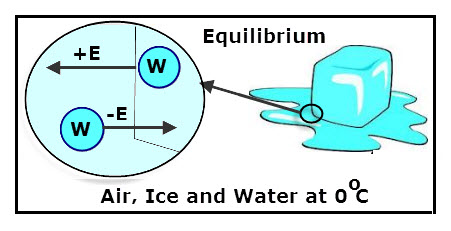What Happens When A Substance Gains or Loses Energy? For this article, heat will be the energy source and water molecules the substance gaining or losing energy. So, what happens when water molecules gain or lose energy? Energy is needed for motion, the more energy a substance has the faster is its motion. The reverse […]
The Melting and Freezing of Water
How Can Water Freeze and Melt at the Same Temperature? The freezing/melting point of water is OºC. But it is not an instantaneous physical change. Instead, both liquid water and ice can be present at OºC. At this temperature, there is a constant exchange of water molecules between the ice and liquid water as shown […]
How Doing Work Transfers Energy
The wagon in the photo is not moving, thus it has no kinetic energy (energy of moving things). If you pull the wagon across the room, you cause the wagon to move a certain distance. In other words, you do WORK on the wagon. Work = Force x distance When you pull (apply a force) […]
Insulator vs. Conductor
Insulator: A material that does not easily allow energy, such as heat, electricity, light, or sound to pass through it. FYI: A material that does not transmit heat easily will not easily transmit other types of energy. For example: Since wood does not easily transmit heat, wood is used for cooking utensils. You can hold […]
Evaporation: Cools Skin
Evaporation Evaporation is a change from a liquid to a gas. Evaporation occurs below the boiling point of the liquid. This means that water will evaporate a temperatures below 212 degrees Fahrenheit (100 degrees Celsius). Activity Wet a cotton ball (or sponge) with water. The objective is to wet a small place on the skin, […]




